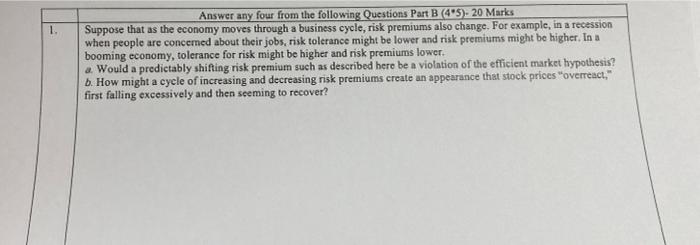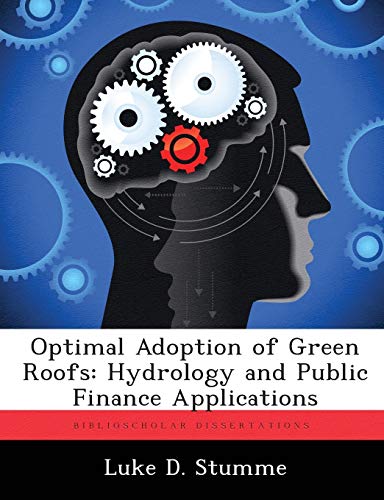
Answer any four from the following Questions Part B (4*5)- 20 Marks Suppose that as the economy moves through a business cycle, risk premiums also change. For example, in a recession when people are concerned about their jobs, risk tolerance might be lower and risk premiums might be higher. In a booming economy, tolerance for risk might be higher and risk premiums lower. a. Would a predictably shifting risk premium such as described here be a violation of the efficient market hypothesis? b. How might a cycle of increasing and decreasing risk premiums create an appearance that stock prices "overreact," first falling excessively and then seeming to recover? Answer any four from the following Questions Part B (4*5)- 20 Marks 1. Suppose that as the economy moves through a business cycle, risk premiums also change. For example, in a recession when people are concerned about their jobs, risk tolerance might be lower and risk premiums might be higher. In a booming economy, tolerance for risk might be higher and risk premiums lower. a. Would a predictably shifting risk premium such as described here be a violation of the efficient market hypothesis? b. How might a cycle of increasing and decreasing risk premiums create an appearance that stock prices "overreact," first falling excessively and then seeming to recover? Answer any four from the following Questions Part B (4*5)- 20 Marks Suppose that as the economy moves through a business cycle, risk premiums also change. For example, in a recession when people are concerned about their jobs, risk tolerance might be lower and risk premiums might be higher. In a booming economy, tolerance for risk might be higher and risk premiums lower. a. Would a predictably shifting risk premium such as described here be a violation of the efficient market hypothesis? b. How might a cycle of increasing and decreasing risk premiums create an appearance that stock prices "overreact," first falling excessively and then seeming to recover? Answer any four from the following Questions Part B (4*5)- 20 Marks 1. Suppose that as the economy moves through a business cycle, risk premiums also change. For example, in a recession when people are concerned about their jobs, risk tolerance might be lower and risk premiums might be higher. In a booming economy, tolerance for risk might be higher and risk premiums lower. a. Would a predictably shifting risk premium such as described here be a violation of the efficient market hypothesis? b. How might a cycle of increasing and decreasing risk premiums create an appearance that stock prices "overreact," first falling excessively and then seeming to recover








